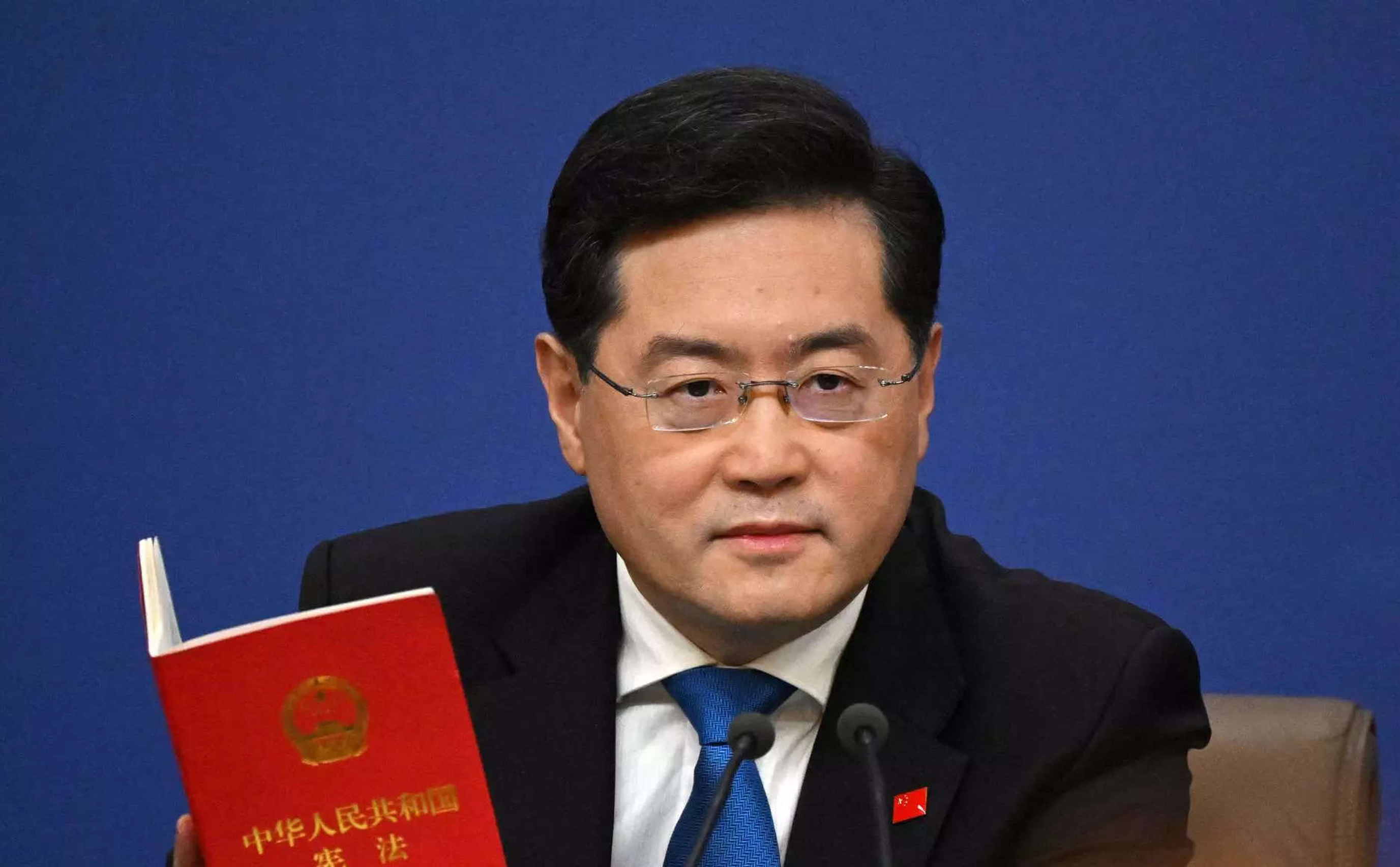China’s foreign minister Qin Gang was dramatically ousted on Tuesday after a prolonged absence from public view and replaced by his predecessor in a surprising and highly unusual shake-up of the country’s foreign policy leadership.
The sudden move, approved by the top decision-making body of China’s rubber-stamp parliament, comes as mystery has swirled around the fate of Qin, who was last seen in public on June 25.
Qin, 57, a career diplomat and trusted aide of Chinese leader Xi Jinping, had only been appointed foreign minister in December after serving as China’s ambassador to Washington.
No reason has yet been given for Qin’s departure but his predecessor Wang Yi will now step back into the role, authorities confirmed.
Wang, who was foreign minister from 2013 to 2022, now serves as director of the foreign affairs arm of the ruling Communist Party, a position which makes him China’s top diplomat.
China’s National People’s Congress Standing Committee made the new foreign minister appointment on Tuesday in a meeting that was abruptly announced the day before, in a deviation from typically choreographed procedure.
The ouster comes in the middle of a busy and important diplomatic period for China following its emergence from pandemic isolation earlier this year and as Beijing tries to mend strained relationships with international partners.
Qin had played a key role in efforts by the US and China to restore communication, including meeting with US Secretary of State Antony Blinken on June 18 during the American diplomat’s visit to Beijing.
In his last public appearance, a smiling Qin was seen walking side by side with Russian Deputy Foreign Minister Andrey Rudenko, who flew to Beijing to meet with Chinese officials after a short-lived insurrection by the Wagner mercenary group in Russia.
Qin’s disappearance from China’s foreign affairs schedule had not been fully explained by the ministry, sparking intense speculation in a country known for its political opaqueness.
The ministry briefly cited “health reasons” when he missed a diplomatic gathering earlier this month. But that response was missing from the briefing’s official transcript posted later on the ministry’s website, and when asked the following week a spokesperson said she had “no information to provide.”
His absence also caused apparent disruptions, with Wang Yi already seen stepping back into the role to attend an annual foreign ministers’ meeting of the Association of Southeast Asian Nations (ASEAN) in Indonesia earlier this month, and again at a key meeting of the BRICS bloc of major developing economies this week in South Africa.
Rise and fall
By Tuesday evening, Qin’s profile had been scrubbed from the Foreign Ministry website, with the page where his portrait and welcome message had been earlier in the day replaced with a message saying “information being updated.”
Adding to the intrigue of Qin’s ouster is his perceived close ties to Xi, who secured a norm-breaking third term in power last autumn with a new leadership team stacked with loyal allies.
Qin had a quick rise to the position of foreign minister, and his appointment last year over more experienced candidates caused some surprise among observers of elite Chinese politics, but was widely seen as a sign of Xi’s trust in the diplomat.
“Qin Gang was single-handedly pulled up the ranks by Xi. Any problems with him will reflect badly on Xi too – implying that Xi failed to choose the right person for the job,” Deng Yuwen, a former editor of a Communist Party newspaper who now lives in the US, told CNN earlier this month
“If anything unusual happened to a senior official, people will wonder if their relations with the top leader have soured or whether it is a sign of political instability,” said Deng.
enior Chinese officials have disappeared from public view in the past, only to be revealed months later by the ruling Communist Party’s disciplinary watchdog that they’ve been detained for investigations. Such sudden disappearances have become a common feature in Xi’s anti-corruption campaign.
It’s not clear if there any disciplinary proceedings have been or will be taken against Qin.
Such gaps in information are not uncommon within the Chinese political system, which by design lacks transparency into the inner-workings of a party that controls all aspects of government and conducts decision-making behind closed doors.
Under Xi, this political opacity has only intensified as the leader cracked down on dissent and concentrated power in his own hands, while expanding Communist Party’s grip over the political establishment and society more broadly.
Hong KongCNN —





